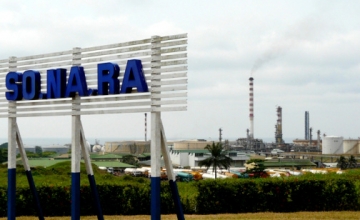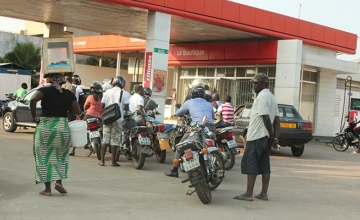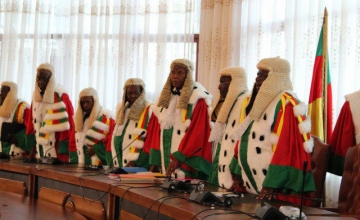
The Wednesday, June 12, 2019 visit to Limbe was led by Chief Mafany Njie Martin, President of the South West Chiefs Conference, SWECC and Chief of Liongo Village in Buea Subdivision.
The chiefs said the objective of their mission was to encourage the Director General of SONARA and his collaborators during such difficult moments.
As traditional rulers and custodians of the traditions of the South West people, they promised to use their traditional knowledge and knowhow in ongoing efforts to rebuild the company considering its strategic and economic importance to the region in particular and Cameroon in general.
The General Manager of SONARA, Jean-Paul Simo Njonou expressed gratitude to the chiefs for their constant support and outlined a series of measures already taken by government to rehabilitate the damaged production units within one year and ensure the continuous supply of petroleum products in the local market.
The South West chiefs were further assured that inquiry to ascertain the cause of the explosion is well on course and that all jobs will be maintained.

Observers have wondered why the chiefs will so promptly visit SONARA after a fire disaster and not the Cameroon Development Corporation, CDC that has been hardest hit by the Anglophone Crisis since 2018.
With about twenty thousand contracts of employment and a related monthly wage bill of about FCFA 2.5 billion, the crisis in the North West and South West Regions is taking a heavy toll on the CDC but the traditional rulers seem to watch in indifference.
General Manager Franklin Ngoni Njie tells whoever gives a listening ear that “the crisis is taking a toll on the socio-economic situation of workers as several establishments are no longer in operation given that workers, out of fear and threats on their lives no longer go to work”.
Workers have been maimed in the plantations, while others were pulled out of their homes and gravely injured. The rubber, banana and oil palm plantations have since not been attended to. With crop production nose-diving, the factories and mills have also had to shut down with only the mill in Idenau working above 50 per cent.














